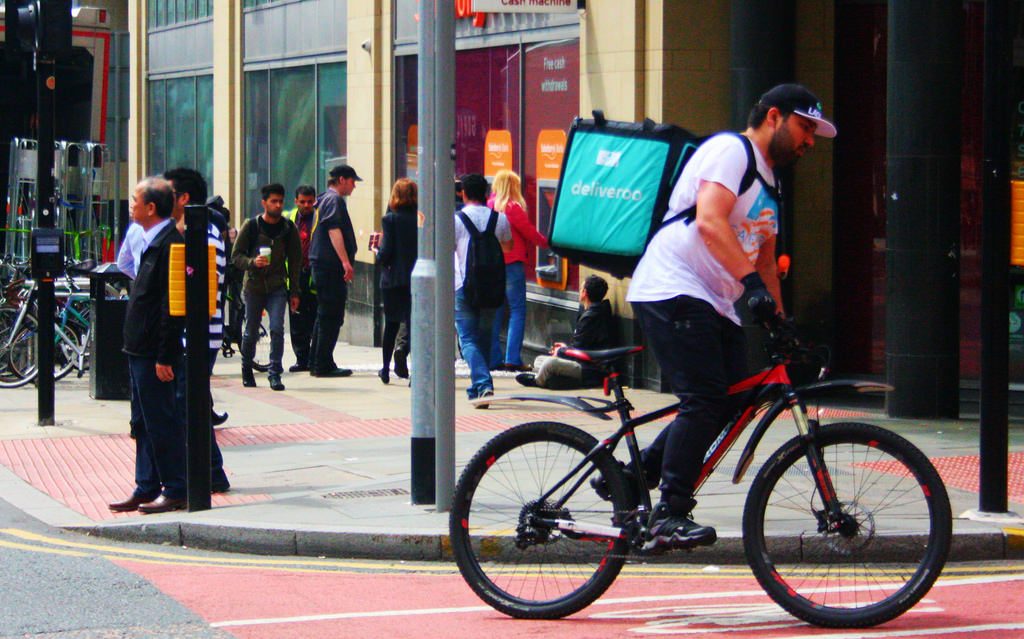
Deliveroo drivers were dealt a blow this week, after the High Court ruled that they were not classed as employees.
The High Court upheld a decision classing the casual workers as self-employed.
The ruling means that drivers working for the company will not share the same rights as other workers. They do not have collective bargaining powers, so they cannot negotiate the right to holiday pay or minimum wage.
Thomas Schofield worked for Deliveroo in Salford and left the company just over a year ago due to low wages. He says that the pay is “not worth the time” that drivers put into the job.
Mr Schofield said: “For me personally, the pay that you get on average isn’t worth riding around in the cold weather.
“I feel that in the position that you’re in, delivery drivers should probably earn minimum wage.”
The Central Arbitration Committee, ruling body for labour laws, decided last year that Deliveroo drivers weren’t entitled to employment rights. The case was taken to the high court following an appeal by trade union Independent Workers Union of Great Britain.
The IWGB argued that drivers’ human rights were being violated, as they were not properly recognised as workers.
Mr Schofield agreed, adding: “I think that this court ruling is a huge step backwards for drivers who are already struggling.
“I sympathise massively, because one of the reasons I stopped doing it was that they pay wasn’t worth it.
“Those who use Deliveroo as their main source of income who do not know how much they’ll have come the end of the month because of this ruling.”
This is not the first time that Deliveroo and its drivers have clashed.
In August 2016, London drivers went on strike after a controversial new pay-plan meant that they would be paid less than the minimum wage. The plan was subsequently scrapped.
Working conditions have also caused friction between the company and its drivers. Protests against working conditions have been held in Berlin and Sydney, as well as several cities in Belgium and the Netherlands.














Recent Comments